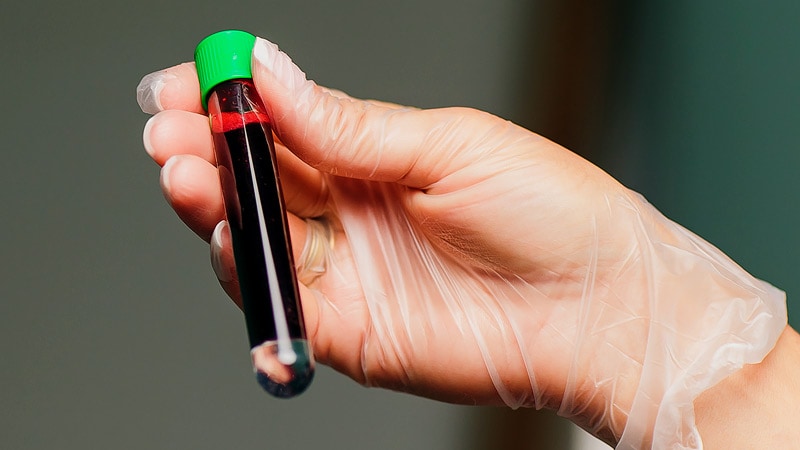Grail Receives FDA Approval for Cancer Blood Test Study
Concepts de base
Grail secures FDA approval for a study on the Galleri multicancer early detection test in Medicare beneficiaries to assess its effectiveness in reducing late-stage cancer diagnoses.
Résumé
The FDA approved Grail LLC's Investigational Device Exemption study to evaluate the Galleri blood test's ability to detect cancers without traditional screening methods. If successful, this could lead to Medicare coverage for the test, impacting cancer detection and healthcare resource utilization significantly. The study aims to include a diverse group of participants and build on previous trial data to revolutionize cancer detection.
Personnaliser le résumé
Réécrire avec l'IA
Générer des citations
Traduire la source
Vers une autre langue
Générer une carte mentale
à partir du contenu source
Voir la source
www.medscape.com
Grail Gets FDA OK for Study of Cancer Blood Test
Stats
Grail's Galleri test can detect over 50 types of cancer.
The test has a list price of $949.
The study will involve up to 50,000 Medicare beneficiaries.
Citations
"We expect that the data collected from the Galleri-Medicare study will add to the growing body of evidence that [multicancer early detection] has the potential to change the future of cancer detection as we know it." - Josh Ofman, MD, MSHS
Idées clés tirées de
by Kerry Dooley... à www.medscape.com 11-27-2023
https://www.medscape.com/viewarticle/998794
Questions plus approfondies
How might the inclusion of diverse participants impact the study's outcomes
The inclusion of diverse participants in the study can have several impacts on the outcomes. By including individuals from racial and ethnic minorities, as well as seniors from historically underserved communities, the study can provide a more comprehensive understanding of how the Galleri blood test performs across different demographic groups. This can help determine if there are any disparities in the test's effectiveness based on factors such as age, race, or socioeconomic status. Additionally, having a diverse participant pool can enhance the generalizability of the study results, making them more applicable to a broader population. It can also help identify any potential biases or limitations in the test's performance that may not have been evident in a more homogenous sample.
What challenges could Grail face in convincing Medicare to cover the Galleri test post-study
Grail may face several challenges in convincing Medicare to cover the Galleri test post-study. One major challenge could be demonstrating the cost-effectiveness of the test to Medicare. With a list price of $949, the Galleri test may be seen as expensive, especially if it is to be offered on a widespread basis. Grail will need to provide robust evidence that the test's benefits in terms of early cancer detection and reduced healthcare resource utilization outweigh its costs. Additionally, Medicare may require further data on the long-term outcomes and impact of the test on patient outcomes before considering coverage. Another challenge could be navigating the complex reimbursement landscape and negotiating with Medicare to establish a reimbursement rate that is acceptable to both parties.
How can advancements in cancer detection influence healthcare policies beyond the scope of this trial
Advancements in cancer detection, such as the development of the Galleri blood test, can have far-reaching implications for healthcare policies beyond the scope of this trial. If the Galleri test proves to be effective in detecting a wide range of cancers at an early stage, it could lead to a shift in cancer screening guidelines and recommendations. This could result in increased emphasis on early detection and prevention strategies, potentially reducing the overall burden of cancer on the healthcare system. Additionally, successful implementation of the Galleri test could pave the way for the inclusion of similar innovative technologies in routine healthcare practices, leading to a more personalized and proactive approach to cancer care. These advancements may also influence policy decisions related to insurance coverage, reimbursement, and access to cutting-edge diagnostic tools, ultimately shaping the future landscape of cancer care.
0
